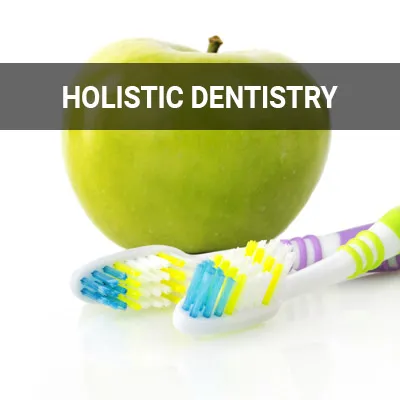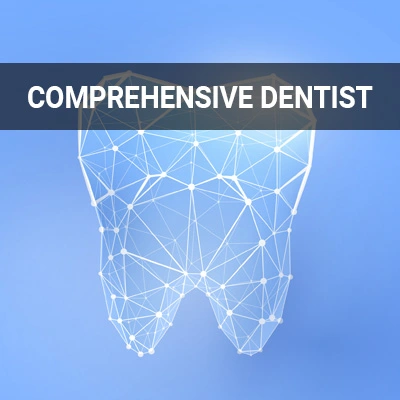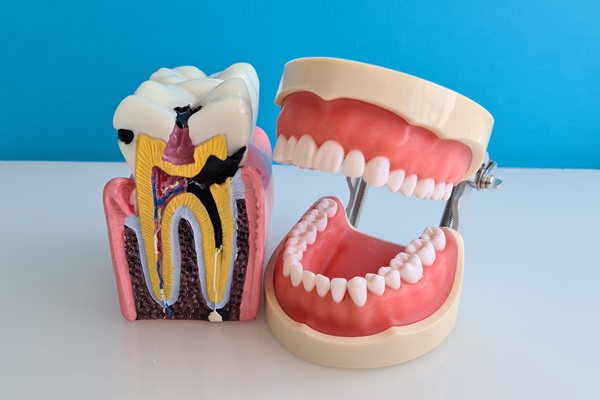Preventative Treatment of Heart Problems Through Improving Oral Health Los Angeles, CA
Many people do not realize that heart problems and dental issues are linked together as part of the oral health connection. In reality, all body systems are interconnected, meaning what happens in one often reflects (or affects) the other. As a result, preventing heart problems may start with improving oral health.
A total oral health doctor can help you better understand the oral health connection and treat your unique and individual needs. At Vatan Dental Group, we can help you prevent heart problems through improving your oral health. We are proud to serve Los Angeles and the surrounding area. Call us today at (310) 906-1300 to schedule an appointment or to learn more about our services.
Blood Pressure Screening During a Wellness Visit
Patients can have a blood pressure screening during a wellness visit with a complete health dentist. These routine dental appointments offer patients the ability to check their blood pressure about every six months. This screening establishes the patient's baseline blood pressure and alerts our team of other issues, such as hypertension or high anxiety.
Taking a patient's blood pressure is a crucial part of understanding their overall health. It is a crucial part of complete health dentistry, which focuses on the connection between oral and overall health. This important health check also offers the opportunity to understand overall health changes since many people see their dentist more often than their physician.
“This screening establishes the patient’s baseline blood pressure and alerts our team of other issues, such as hypertension or high anxiety.”
How Heart Health Can Affect Oral Health
Since oral health and heart health are connected, it should come as no surprise that patients with heart disease may need specific adjustments to their dental care. Patients who have had a heart attack, stroke, heart failure, high blood pressure, or even chest pain (also known as angina) should consult their cardiologists before undergoing any dental treatments. Once approved to go to the dentist, patients should tell their dentists about any medications they are taking and ask about what measures the team may take in case of a medical emergency.
Total oral health doctors should be prepared to make any of these adjustments as necessary. While traditional dentists tend to treat isolated conditions, total oral health doctors take a more look at patients in their entirety. This means taking a more involved look at medical histories and pre-existing health conditions while also keeping an eye out for potential comorbidities.
Tell Your Dentist About Heart Problems
Patients should always tell our team about any health concerns, especially if they have a heart problem. Communicating these conditions is a vital part of protecting health. Dental treatment can have a great impact on the heart. For example, routine dental cleanings can cause bleeding in the mouth, allowing bacteria to enter the bloodstream and possibly reach the heart. This issue can be potentially dangerous for patients with heart issues, such as inflamed heart valves or tissues.
People with heart problems should always consult their doctor before seeking dental treatment. They should also let us know about any medications that they are taking for their heart problems. Knowing a patient's health status is a necessary precaution that will help us provide safe and effective dental treatment.
“Patients should always tell our team about any health concerns, especially if they have a heart problem.”
Check out what others are saying about our dental services on Yelp: Preventative Treatment of Heart Problems Through Improving Oral Health in Los Angeles, CA
Warning Signs of Heart Problems
Our team will watch for symptoms of heart problems. Inflammation in the gums and loose teeth can be warning signs of heart disease. The bacteria present in patients with gum disease can travel through the bloodstream to the heart and contribute to coronary artery disease. The bacteria may also increase the risk of clot formation or plaque building up in the arteries, interfering with heart blood flow.
Some signs of gum disease that can result in heart issues include:
- Red, swollen, and sore gums
- Gums that bleed easily
- Pus or other signs of infection in the gums and teeth
- Receding gum lines
- Persistent bad breath or taste in the mouth
“Inflammation in the gums and loose teeth can be warning signs of heart disease.”
Questions Answered on This Page
People Also Ask
Q. Why is preventative care important? How can it save you money?
Q. Why is it important to find the right general dentist?
Q. What is the link between heart disease and oral health?
Q. What family members may need extra help with their oral hygiene?
Systems Related to Heart Health
The heart works closely with other systems in the body to keep it functioning. Due to this interconnectedness, heart problems can have a significant adverse effect on the related systems. Heart health can affect the respiratory system since the heart and the lungs are closely connected. They work together to ensure that the cells in the body receive the oxygen necessary to live. If the heart becomes diseased or damaged due to poor oral health, it can affect the lungs and impair breathing.
The heart is also an integral part of the cardiovascular system, impacting all the other body systems. The cardiovascular system and the respiratory system work together to supply the body with oxygen and nutrients. Poor oral health can result in issues that increase the risk of heart disease. If harmful oral bacteria reaches the heart, it can result in greater health issues such as endocarditis, clogged arteries, and stroke.
“The heart works closely with other systems in the body to keep it functioning.”
Frequently Asked Questions
Q. How is proper oral hygiene critical for heart health?
A. Caring for oral health is a crucial part of maintaining heart health. People should brush their teeth twice each day, floss every day, and have regular dental check-ups. These preventative actions can help people maintain good oral health and positively impact blood pressure and lower the risk of heart problems.
Q. What is normal blood pressure?
A. Blood pressure is the force of the blood pushing against the artery walls. It is measured using the systolic blood pressure when the heart beats, and diastolic blood pressure when the heart is resting. A normal blood pressure reading is lower than 120/80 mmHg.
Q. How often should I have a wellness visit?
A. Typically, people should have a wellness visit about once to twice a year. The optimal appointment frequency will vary for each person. People with more dental issues may have to schedule visits more frequently to maintain their oral health.
Q. What is the difference between a complete health dentist and a regular dentist?
A. Complete health dentists focus on the connection between oral and overall health. We look at the patient's entire body when treating dental problems. This approach differs from regular dentists who only focus on dental health and treating and diagnosing issues related to the teeth, gums, jaws, and areas of the neck and head.
Q. What is high blood pressure?
A. High blood pressure is when the force of the blood flowing through blood vessels is too high. Various factors can contribute to high blood pressure, but one of them is poor oral health. Plaque and harmful bacteria can build up and lead to gum disease which has a connection to raised blood pressure.
Dental Terminology
Call Us Today
A total oral health dentistry doctor can help you maintain both your oral and heart health. We at Vatan Dental Group may be able to help. Call us today at 310-906-1300 to schedule an appointment or to learn more about our services.
Helpful Related Links
- American Dental Association (ADA). Glossary of Dental Clinical Terms. 2024
About our business, license, and website security
- Vatan Dental Group was established in 2012.
- We accept the following payment methods: American Express, Cash, Check, Discover, MasterCard, and Visa
- We serve patients from the following counties: Los Angeles County
- We serve patients from the following cities: Los Angeles, Inglewood, Westchester, Marina del Rey, Playa del Rey, Playa Vista, Culver City, Fox Hills, Hawthorne, El Segundo and Santa Monica
- CA (License #49259). View License Information and Specifics
- National Provider Identifier Database (1740278662). View NPI Registry Information
- Norton Safe Web. View Details
- Trend Micro Site Safety Center. View Details
Back to top of Preventative Treatment of Heart Problems Through Improving Oral Health
QR code for Preventative Treatment of Heart Problems Through Improving Oral Health











